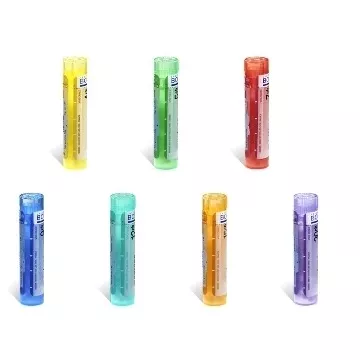




What is a boil?
A boil is a deep, painful skin infection that forms around a hair follicle or sebaceous gland. It usually appears as a red, inflamed, pus-filled nodule, and can be caused by the bacterium Staphylococcus aureus. Boils can occur on any part of the body, but are more common in areas subject to friction or perspiration.
What causes boils?
Boils are mainly caused by a bacterial infection, often due to Staphylococcus aureus. Risk factors include poor hygiene, cuts or scrapes on the skin, irritated skin conditions, diabetes, immune deficiencies, or exposure to irritating chemicals.
How can boils be prevented?
To prevent boils, we recommend maintaining good personal hygiene, using mild cleansing products, promptly treating any cuts or wounds, avoiding sharing laundry or razors, and wearing loose-fitting clothing to reduce friction.
What treatments are available for boils?
Treatment of boils can vary according to their size and severity. Methods include the application of warm compresses to accelerate maturation, incision and drainage by a healthcare professional for larger boils, and in some cases, the prescription of antibiotics to fight infection. It's crucial not to try to pierce or extract the pus yourself, to avoid the risk of spreading the infection.
When should you consult a doctor about a boil?
It's important to consult a doctor if the boil is particularly large, painful, located on the face or spine, if you have a fever, if symptoms of infection spread, or if boils recur frequently. This could indicate a more serious infection requiring medical intervention.
Tips for living with boils
How can you tell a boil from a pimple or acne?
A boil is distinguished from a pimple or acne by its size, sensitivity and pus content. Unlike acne, which can be caused by clogged pores or overproduction of sebum, a furuncle is a deep infection of the hair follicle, characterized by a red, inflamed nodule.characterized by a red, swollen, painful nodule, often topped by a white spot indicating the presence of pus. If the lesion is particularly painful, develops rapidly, or is accompanied by symptoms such as fever, it's likely to be a boil.
Can you catch a boil from another person?
Yes, boils can be contagious if the pus or fluid they drain comes into contact with another person's skin, especially if there are cuts or scrapes. Transmission can also occur through the sharing of towels, sheets, clothing or other personal items. It's important to cover the boil with a clean dressing and practice good hygiene to reduce the risk of transmission.
Can boils recur?
Yes, some people are more likely to develop recurring boils, a condition known as furunculosis. This can be due to factors such as low immunity, chronic bacterial infections, diabetes, or poor hygiene. Preventing recurrence involves good personal hygiene, treatment of underlying conditions, and sometimes the use of antiseptic soaps or preventive antibiotic treatments.
What complications can arise from a boil?
Although most boils heal without complications, in some cases the infection can spread to surrounding tissue, leading to more serious conditions such as abscess (a larger, deeper accumulation of pus) or cellulitis (an infection of the skin and underlying tissue). In rare cases, the infection can also enter the bloodstream, leading to sepsis, a potentially fatal condition.
What tips can you follow to speed up the healing of a boil?